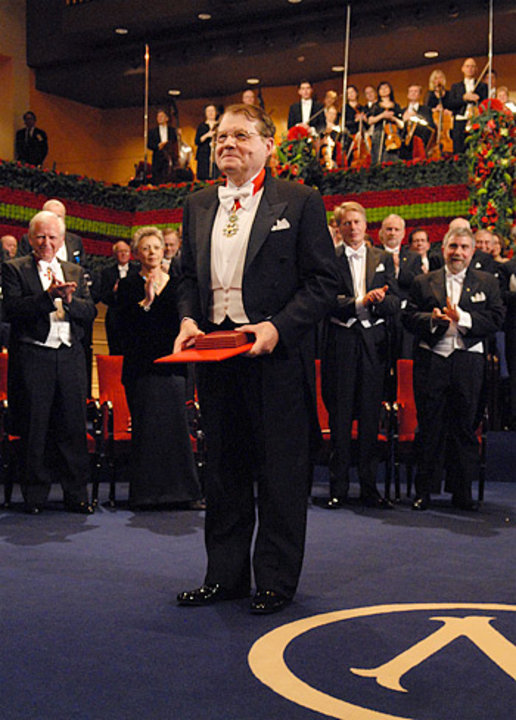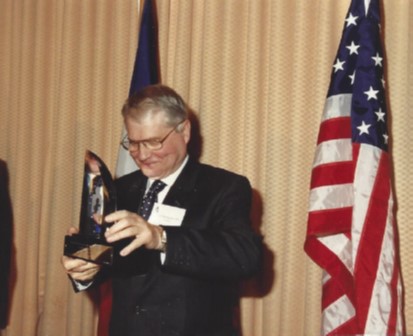Luc means light: Rios remembers Dr. Luc Montagnier
“There are many questions which can be resolved only by hard work and innovative thinking.” – Dr. Luc Montagnier, 2008 Nobel Prize of Medicine and Physiology

In 1989, the city of Houston was considered like many other port cities of the nation, one of the epicenters of the AIDS pandemic. It had the fourth highest number of AIDS cases for several years.
In those times, Houston was in many ways a microcosmic representation of the larger national picture: fear, anguish, lack of resources, and above all indescribable levels of human suffering. At the time, there was only one drug approved for the treatment of HIV, a nucleoside analogue, zidovudine or AZT.
An attempt to create an institution solely devoted to the care of AIDS patients had failed, and with it, precious federal resources initially allocated to Houston left the city.
In contrast, the social and cultural environments of the east and west coast, the ‘third coast,’ Texas was on it’s own. Out of sheer desperation, a community coalition of physicians and civic leaders decided to organize grass root efforts to combat AIDS and the vacuum that had been created by closure of the Institute for Immunological Disorders, or as it was known ‘the AIDS Hospital.’
In an attempt to give validation to these efforts it was decided to organize a conference that would bring the best minds on AIDS to Houston and maintain a lifeline of communication with other national and international epicenters where the work against AIDS had better support and resources than what was then available in Houston.
It is hard to envision the sense of sheer desperation that filled the soul of the Houston AIDS community in those days. How can we call attention to it, how can we motivate, and how can we survive?

The virus responsible for causing AIDS had just been discovered, and the idea was put forth to invite the discoverer of the AIDS virus to inaugurate the conference. It was an idea viewed not only with skepticism, but in some circles rather with contempt and scorn as unrealistic.
Nonetheless, hope prevailed. The coalition approached Dr. Luc Montagnier, the man who had discovered the Human Immunodeficiency Virus, HIV, and invited him to come to Houston and inaugurate the first Annual Houston Conference on AIDS in America. Montagnier, to the surprise of many, was aware of Houston’s AIDS problems and was concerned about them.
On May 10, 1989, he departed from Paris, and the next day he inaugurated the conference in front of 250 attendees at the Hyatt Hotel in downtown Houston. He left the same day, leaving words of encouragement and wisdom. The Houston Conference on AIDS in America continued the links of the Texas AIDS Community with other academic institutions around the country where these types of problems were not as prevalent.
Through self-support efforts and at no cost to the public, the conference brought to Houston 11 years of the best minds with expertise on AIDS, allowing patients, physicians, and the healthcare community in general to continue to receive information and to develop programs of research and treatment. Those activities were responsible for saving many lives and provided comfort to thousands of patients.
From that fateful first visit, Montagnier kept contact with the Houston AIDS community and throughout the years visited Houston. It was one of the first cities to which he came after receiving his Nobel Prize in Medicine in 2008 for his participation in the discover of the AIDS virus together with Dr. Françoise Barrè-Sinoussi, his colleague from the Pasteur Institute.
By 1997, the last year it was held, the conference had grown to the point that it could only be held at the George R. Brown Convention Center. The AIDS scene in Houston was different with a scientific and civic community thoroughly organized and the active participation of many medical institutions.
At the last conference, Montagnier was awarded a Lifetime Achievement Award for his work with the Houston AIDS community. His expressions when accepting the award reflected the satisfaction and appreciation for this city and its people with who he had marched shoulder to shoulder from darkness into light, the prophetic name of Dr. Montagnier, and as he was known to many, just Luc (‘light’).